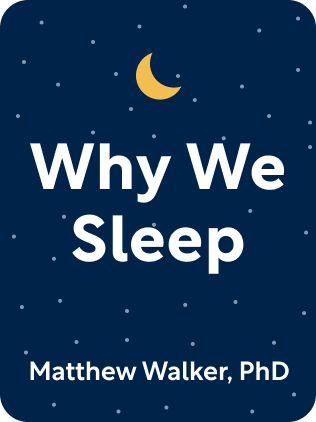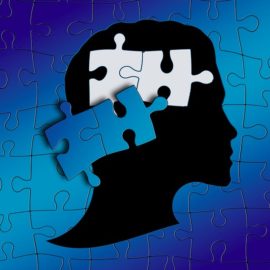

This article is an excerpt from the Shortform summary of "Why We Sleep" by Matthew Walker. Shortform has the world's best summaries of books you should be reading.
Like this article? Sign up for a free trial here .
You probably know that you need sleep. But do you know how sleep affects the brain?
Knowing how sleep affects the brain can help you get a better night’s sleep and understand how sleep works. How sleep affects the brain is an intricate process, and you can learn more below.
How Sleep Affects the Brain
Before you get good sleep, you need to know how sleep affects the brain. Getting good sleep improves your brain in these ways:
1) Sleep improves long-term factual recall
Memory is one of the most important parts of how sleep affects the brain. Your brain stories different memories in different places. The hippocampus stores short-term memory with a limited capacity; the cortex stores long-term memory in a large storage bank.
The slow-wave, pulsating NREM sleep moves facts from the hippocampus to the cortex. This has two positive effects: 1) it secure memories for the long term, and 2) it clears out short-term memory to make room for new information and improves future learning.
Have you ever woken up recalling facts that you couldn’t have recalled before sleeping? Sleep may make corrupted memories accessible again.
But how does sleep affect the brain in this way? While good sleep improves memory, sleep deprivation can prevent new memories from being formed. This might be partially because the hippocampus becomes less functional with less sleep, partially because lack of NREM sleep prevents solidifying of new memories.
Unfortunately, making up a sleep deficit later doesn’t help recover a previous days’ memory – if you lost it, you’ve lost it.
2) Sleep prunes memories worth forgetting
How does sleep affect the brain when it comes to forgetting things? Sleep doesn’t preserve all memories equally strongly – somehow, the brain knows which memories are useful and worth preserving, and which ones are useless and OK discarding.
Experimentally, this has been shown in experiments where subjects are given a list of words and instructed which words to remember and which to forget. Students who get to take a nap show stronger memories for the appropriate words, compared to students who don’t nap.
3) Sleep increases “muscle memory” or motor task proficiency
How does sleep affect the brain in ways other than memory? You might struggle with a motor task (like playing a tough sequence on piano), but after sleeping, be able to play it flawlessly. Sleep seems to transfer motor memories to subconscious habits.
Sleep deprivation also worsens general athletic performance: getting less sleep decreases your aerobic capacity, time to exhaustion, and recovery; and it increases risk of injury and lactic acid generation.
The above benefits generally occur in NREM sleep, which is concentrated in the beginning of sleep. In experiments, participants who have NREM sleep disrupted perform worse than those who have REM sleep disrupted.
A few last scientific details:
- Motor memory is associated with stage 2 NREM, which is concentrated in the last cycle of sleep.
- Sleep spindles are associated with better memory effects.
Now that we understand how sleep affects the brain, imagine how we can apply this knowledge into useful therapies:
- Imagine modifying sleep to selectively control what to remember from the day – like remembering content for an upcoming test and a happy moment, while decreasing traumatic moments.
- (This might lead to the side effect of having a have distorted memory of life).
- Use sleep to delete traumatic memories (for PTSD) or train away bad motor habits (like substance abuse).
- Find ways to augment the natural abilities of sleep, like with electrode stimulation of brain, pulsing sound in sync with brain waves, or rocking the bed rhythmically.
Now you know how sleep affects the brain. You can use your new knowledge of how sleep affects the brain to develop better sleep habits that contribute to your overall health.

———End of Preview———
Like what you just read? Read the rest of the world's best summary of Matthew Walker's "Why We Sleep" at Shortform .
Here's what you'll find in our full Why We Sleep summary :
- Why you need way more sleep than you're currently getting
- How your brain rejuvenates itself during sleep, and why nothing can substitute for sleep
- The 11-item checklist to get more restful sleep today






